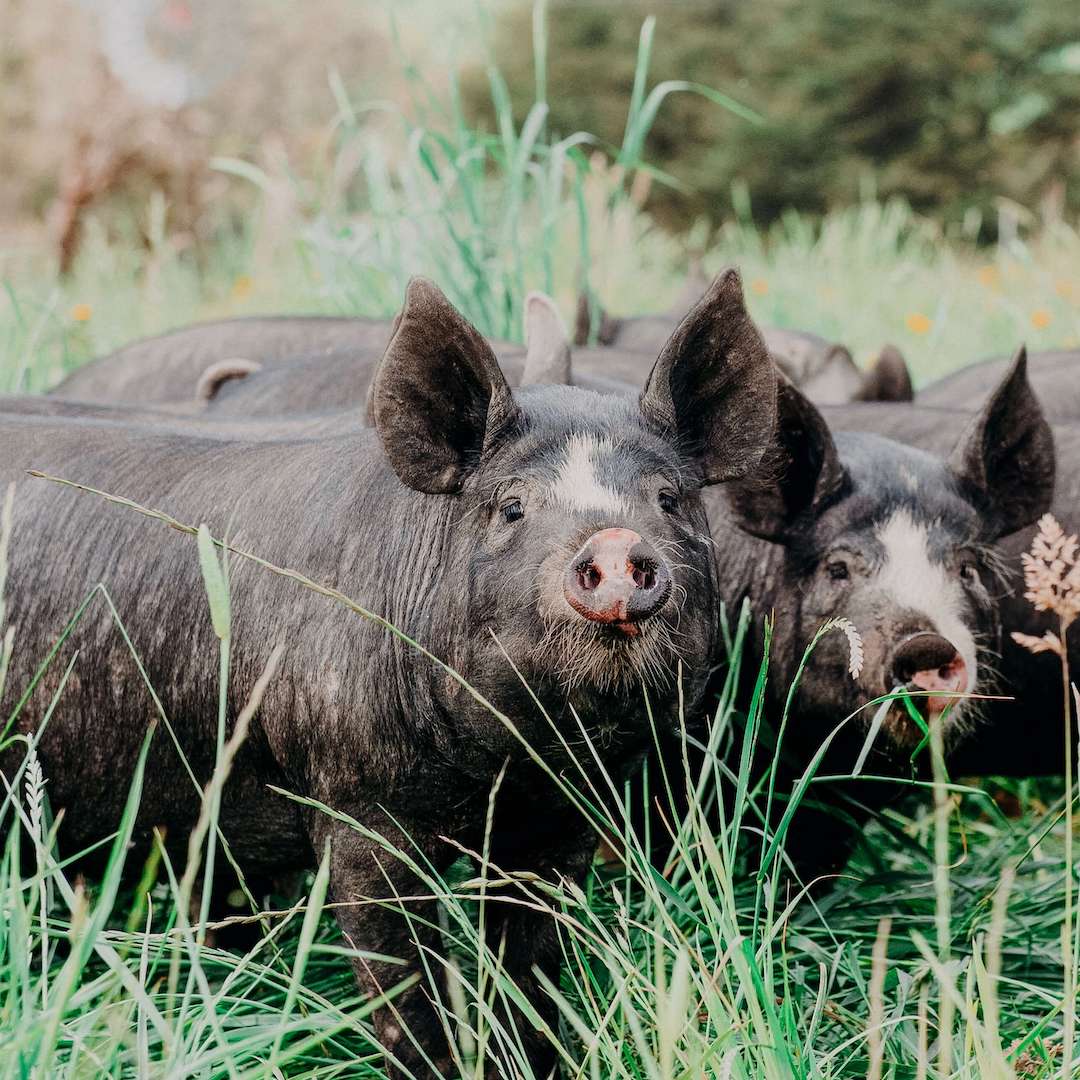Your Cart is Empty
Delivery Across Victoria | Free delivery over $150
The Hagan's from McIvor Farm are also counting down the days until Christmas!
It's their award-winning pigs that we use for our house-made hams, which is why we've asked Jason and Belinda to share why farming sustainably is so important to them.
What is beyond-free-range?
Typically free-range focuses on the freedom of the animals to range, but that doesn’t mean it is good for the environment (Eg. you can put pigs in a paddock and they have the ability to be free to range, but you leave them there for a long time so they compact the land, build up of manure - so not good for the environment). When McIvor Farm started in 2010 - we focussed on a farming system taking it ‘beyond’ that mind-set. We have developed a Holistic Farming Management System - to have the animals live in a system that gives them the ability to live a better life but make sure the environment is at benefit.
What’s different about Berkshire pigs?
Berkshire’s are an old English breed that love living outdoors. They have the characteristics of being a black pig with a white blaze on their forehead, white socks and white tip of the tail. The pig industry moved away from old-breeds as they deposit more fat, are slower growing and are as productive as the more specialised breeds. The other characteristics is the quality and flavour of the Berkshire meat - also known as ‘the wagyu of pork’ - the marbling and fat give the Berkshire pork a real sweetness and gives the best crackle!
What farming methods do you use?
Regenerative Farming gives an overall name to many systems we use. Regenerative in the sense of regenerating the soil, the land, the eco-systems, respecting all living beings from the soil microorganisms, to the animals (farming and wildlife), the plants and most of all the people. This type of farming is bringing people back to the land, which then also back to rural communities - which also our system is involved in regenerating rural communities & towns - as people shop locally, more children at the school or sporting groups. Regenerative Agriculture is a bigger picture than just the farm.
What got you interested in sustainable farming?
Our interest was beyond sustainable - sustain means to stay put - if our farming land and business was to stay in the same state - we would have lost the farm to the bank. We started to investigate other farming methods around the world, explore why the food system is broken and this led us to learning about farming systems that have an Holistic approach and replicate nature - working together.
What do you feed your pigs?
Pigs are omnivores - they have the same digestive system as humans and they like to eat a variety of plants and meat. Belinda studied animal nutrition and worked in the animal feed industry for over 10 years prior to starting McIvor Farm. Therefore Belinda’s knowledge and background has given McIvor Farm an advantage of knowing how to provide their pigs with a balanced diet. The pasture mix of grasses, turnips, radishes (which alter each season) are balanced with an 100% Australian Grain & Protein mix which also provides vitamins, minerals, herbs and gut acidifiers to promote gut health. McIvor Farm only provide vegetable proteins in the diet nowadays (no meat products) - this is to ensure the biosecurity of animals such as cattle & sheep which are only allowed to consume plants - do not come into contact with any meat products.
What are 3 tips for cooking with your pork?
DON’T overcook it - it’s OK to eat pork medium. Those red juices mean it’s medium and still moist & tender. Preparation is the key to good CRACKLE - sit the roast in the fridge, uncovered (yes nude) overnight. Let the fridge dry out the skin - then a couple hours prior to cooking, let the meat rest on the bench, then a good cover of olive oil, salt into a HOT oven!
What is an absolute must-have dish you cook at Christmas?
We love to glaze our Full Leg of Ham - to make it special for the day. Remove the skin, score the beautiful layer of fat that the Berkshire bring to us, cloves and then a traditional orange marmalade glaze - into the bbq with the hood down for approximately 1 hour - to render the fat, caramelize the glaze and warm the ham (remember the ham is already cooked). DELICIOUS!
